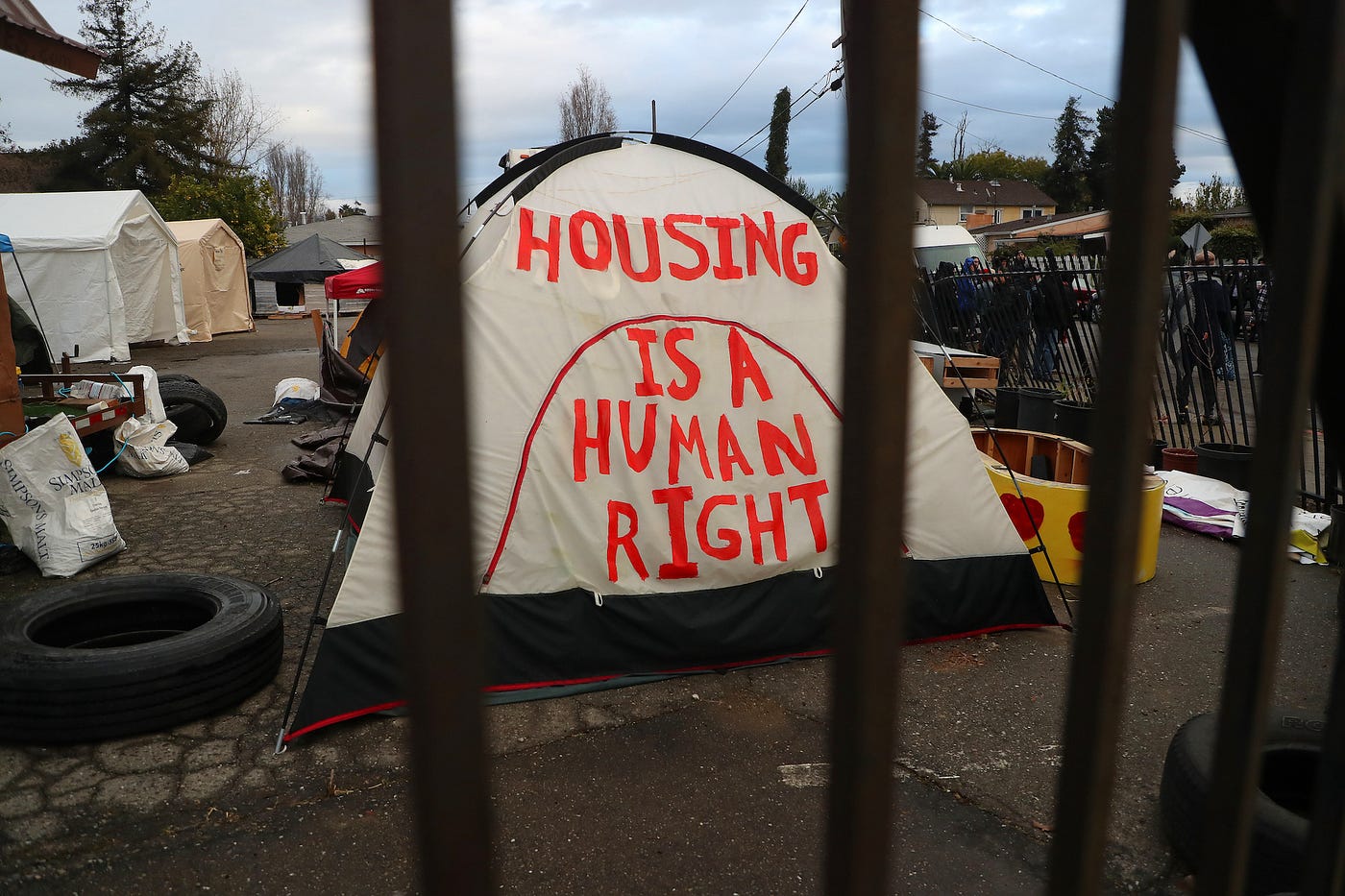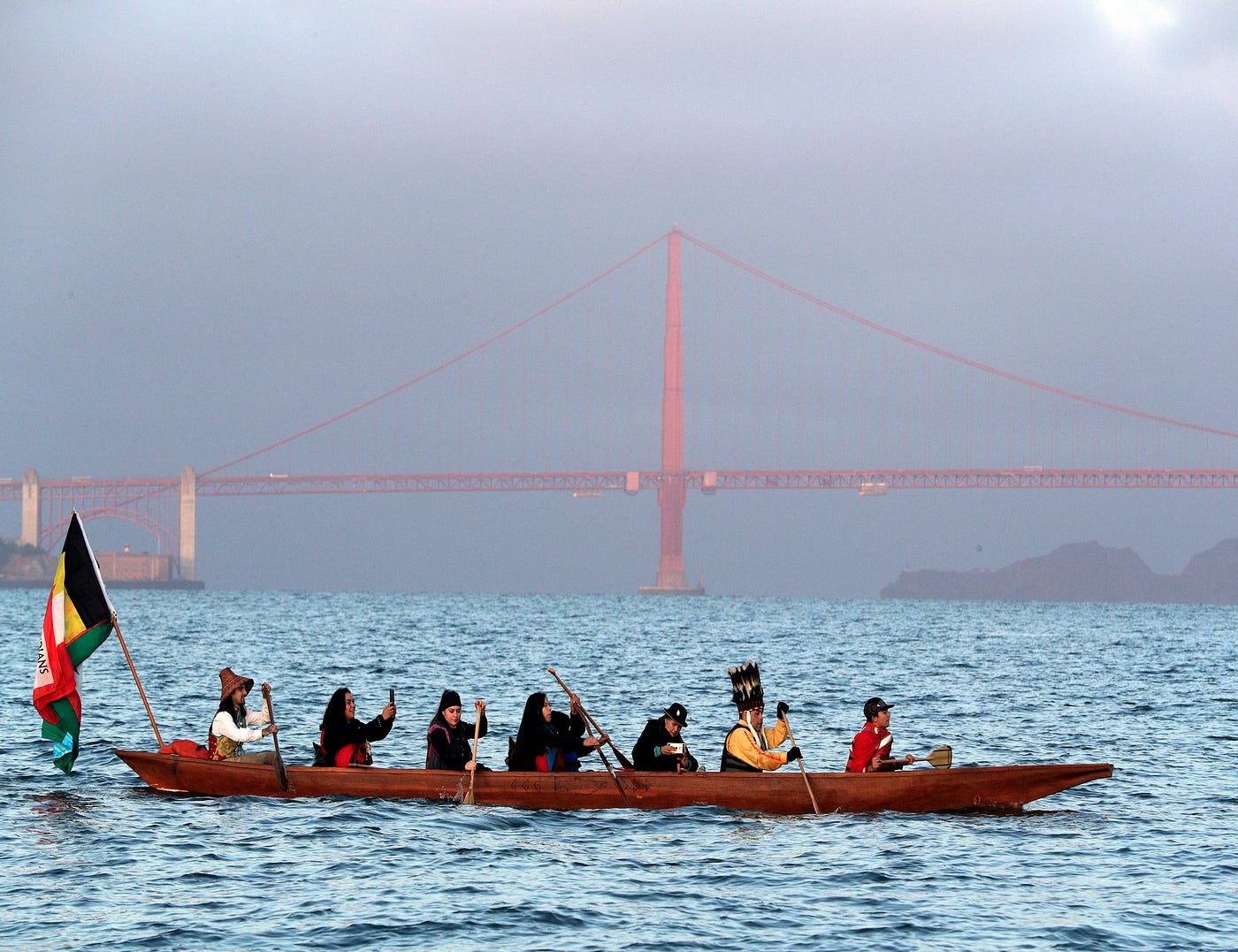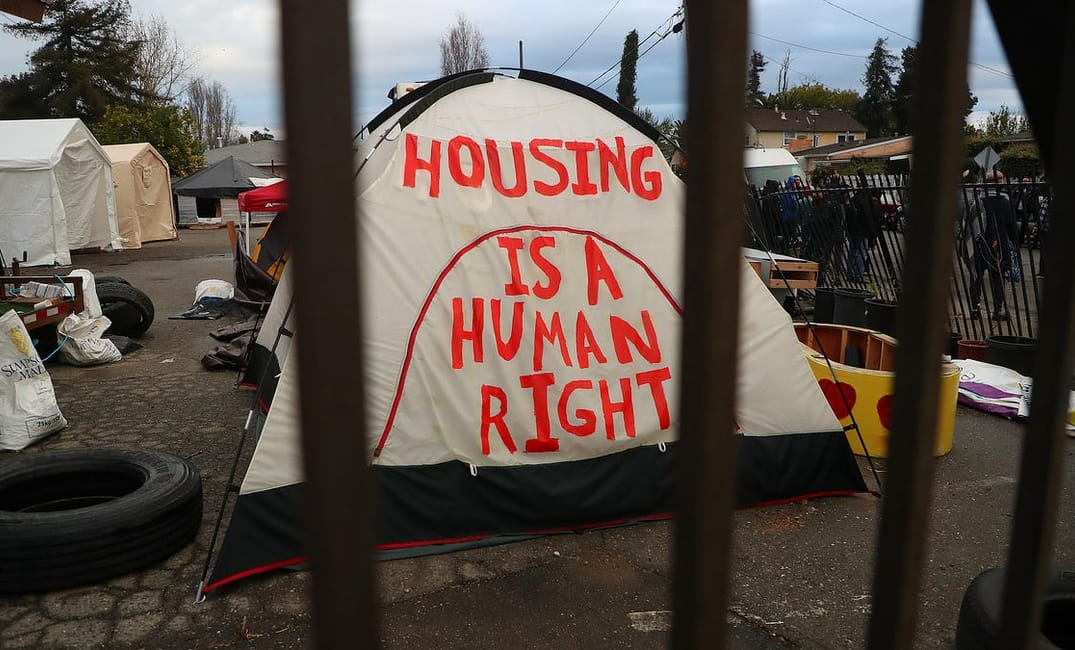
If you were born and raised in the Bay Area, you know how deeply ingrained this sacred place is in our bones and blood. Author Deborah Miranda sums it up best: “Who we are is where we are from, and where we are from is who we are.”
If you’re from the Bay and you’ve managed to stick around over the past decade or two, you’ve witnessed firsthand how rapidly our region has changed. How startup culture exploded and transformed San Francisco and our surrounding towns into something nearly unrecognizable. Like the Spanish colonizers and gold prospectors before them, tech companies moved in, altered the landscape, and forever changed the lives of those of us who call this place home.
From ride-share traffic and blocked MUNI stops to the Black exodus from San Francisco and more than 3,600 Ellis Act evictions of longtime San Franciscans, the tech boom came with few benefits for locals. We saw skyscrapers pop up in nearly every corner of downtown while affordable housing dwindled. Developers capitalizing on the “tech rush” have often chosen to pay fees rather than build the required number of affordable units.
I’m curious if the companies that were born here — the Googles, Twitters, LinkedIns, and Ubers of Silicon Valley — identify with being from here the way I do. If they want to honor the brilliance born and bred here for generations before them, then repair must be made.
It is not just the gutting of the homes we grew up in and the skyrocketing of cost of living — it’s the literal erasure of our neighbors, communities, and vibrantly unique cultures, repeating ongoing waves of colonial conquest that us white folks have perpetuated for centuries.
When tech entrepreneurs came to the Bay to capitalize on the opportunities here, their actions made something incredibly clear to the local community: They wanted what was here, not who was here. Their wealth came quite literally at the expense of locals, with city government–supported tax breaks like the notorious Twitter tax that cost the city $70 million in revenue. While some argue that this revitalized the mid-Market area and other historically ignored neighborhoods, I question whether the communities themselves felt that this harm was offset. Tech folks came here to strike gold, ushered in by the lack of taxation and regulations, and in the process, locals who didn’t join their ranks were left out of the puzzle. You were either in or out.
The damage has been done. It’s time to make it right.
Tech, let’s be real: You owe reparations.
While reparations are not a new concept for most Black and Native folks in this country, they have returned to the spotlight after the racial awakening that many of us white folks were called into during the summer 2020 uprisings. When harm is caused, repair must be made, whether that’s back taxes and compensation, returning land, or taking away the structural barriers for survival. No real repair has ever been centered on a national scale to the folks who built this country and whose land was stolen to create this country. Yet every day we have an opportunity to make things right.
I’m a third-generation San Franciscan who got on board with the tech shift for a little while. From 2019 to 2020, I worked in Silicon Valley in DEI and social impact at a 10-year-old midsized startup. I was eager to work with a company that aligned with my values and that was genuinely combating the inherent racism and classism that comes with hiring (and everything) in this country. Even as a white, middle-class San Franciscan with 10 years of experience as an educator and community organizer, it took me six months to land that job. I knew how hard it was for more oppressed local communities to break in. I was hired on the recruiting team and immediately made my politics clear to my colleagues: Let’s center working-class Black and Brown San Franciscans for both our social impact and DEI strategies.
If companies are committed to the tenets of diversity, inclusion, and equity, I thought, then they must focus on the talent who already live and breathe here in the Bay.
My employers responded with the typical pushback: Hiring equitably is hard; they hadn’t thought about geography as a component of diversity; they assured me that progress is slow, so we must be patient. I started to look around with a little more scrutiny.
Headquartered in San Francisco, with nearly 400 employees at our SF office, I began to collect data: Who was from here? While my data collection was certainly community-based, my questions led me to a paltry result: 1% to 2% of our employees claimed San Francisco as “home.” None of these folks were Black, Latinx, or Native. A slightly larger 3% to 4% claimed the Bay Area at large as their turf. But one thing stuck out sharply: Out of that small group, too few identified as Black, Latinx, Native, or Pacific Islander, the groups least represented in the tech field and most affected by gentrification.
These figures were disappointing but not surprising. Over the past two decades, we’ve seen how gentrification has affected the Bay Area — I’ve noticed it in San Francisco particularly — with symptoms ranging from displacement and homelessness to cultural and aesthetic shifts. The tech boom drastically shifted the residential makeup of the city — San Francisco went from 13% Black in the 1970s to just 3% Black in 2020. The Mission District, a historically Latinx neighborhood, was 60% Latinx in 2000 but is projected to be just 31% Latinx by 2025.
The tech rush also displaced predominantly Black and Brown communities beyond the confines of San Francisco, in places like Oakland, East Palo Alto, and Richmond. In Oakland, by 2030, if trends of the past 15 years go on without interruption, the city’s Black population could decline to just 70,000 people, down from 140,000 in 2000. This decline turns Black Oakland from 35% of the city’s population to a staggering 16%.
So I ask tech companies: As a guest on this land, what are you committed to? What will you ultimately stand for?
This data hits deep for those of us who are from here. It is not just the gutting of the homes we grew up in and the skyrocketing of cost of living — it’s the literal erasure of our neighbors, communities, and vibrantly unique cultures, repeating ongoing waves of colonial conquest that us white folks have perpetuated for centuries.
When I saw this pattern emerge in my company’s own data, I did what community organizers do best: I phoned a friend and got the energy flowing. I asked friends at other prominent tech companies to begin this informal, community-based data collection. Over and over again, the information that came back was dejecting — just 1% to 3% of employees who were surveyed claimed the Bay as their home. When my friends and I interviewed different “employee resource groups” (in which underrepresented folks can find community together) about who was from the region, the same results surfaced: Very few of the Black and Brown employees hailed from the Bay Area.
Something I’ve learned throughout my journey as a white organizer and justice seeker is that as a settler—meaning my family is non-Native and came here as part of the ongoing colonization of this land—I must be committed to ending suffering and harm on every level. Activist and Chochenyo Ohlone spokesperson Corrina Gould reminds us that while she wants to be a good host on her peoples’ land, she needs “good guests.” As an uninvited guest on this land, I must be committed to doing my part to create wellness and center the folks most dispossessed from the forces of capitalism and white supremacy.
So I ask tech companies: As a guest on this land, what are you committed to? What will you ultimately stand for?

To avoid California taxes and regulations, tech companies like Oracle, Palantir, and HP have recently packed up and moved out. They came, conquered, and now, rather than staying to be a good guest and committing to the community they upended, they’re leaving the Bay Area in the dust.
Reparations are not so much a charitable giving up, but more of a humble giving back of what has been stolen. So here is your invitation to make things right. Here is your invitation to nourish and invest in the communities where you have made your home and ensure that the next generations of Bay Area folks can still call this land home.
Big companies often want to support the nonprofits that address the symptoms of inequity and displacement here, giving to soup kitchens and school laptop drives, but they have yet to fund the ongoing grassroots work that is strategizing for a new paradigm.
What would it mean to use tech wealth to fund the Black liberation movements on the ground? How about committing to 15% of your hires being local, underrepresented talent and establishing programs to ensure folks’ success? How about purchasing blocks of apartment buildings and single-family homes to turn into land trusts that are owned and run by Black and Brown collectives, to secure stable housing and community ownership over our city? What would it do to get all of Big Tech to pay an annual settler land tax to the Sogorea Te’ Land Trust? Think about the capacity for authentic social impact and respect of humanity.
Or they can continue to willingly contribute to the centuries of anti-Blackness, settler colonialism, and white supremacy that define this country and its companies.
Make your choice, Silicon Valley.
Sign up for The Bold Italic newsletter to get the best of the Bay Area in your inbox every week.







